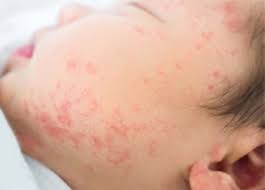Keep going with breast milk or formula
Babies don't usually eat a lot of solid food right away. So
think of solids as something you add to your baby's diet, not as a substitute
for breast milk or formula. Remember, you are showing solid food, no matter
your baby's diet or eliminating milk. This will happen gradually.
Start solids after 4-6 months
This is the recommended time to put in solid food. But it's
not just about age. Before starting solids, your baby should be able to sit
(with support), turn his head and make chewing movements. It should also be
beyond the reflex that causes it to spit out anything including fluid.
Is It necessary to Start with Rice cereal?
You Don't Have - There is no hard and fast rule about which
solid foods you should start your baby with. In fact, you don't have to start
with cereal at all. But then, try baby cereal with iron-fortified grain with no
flavorless neutral flavor. It will also be a little easier to spot food
allergies than cereals made from some grains. You may want to mix it with
formula or breast milk to get fluid consistency at first, so it's not a drastic
change for your baby. Gradually empower it until your baby gets used to the new
texture.
Eating solids is practicing to baby.
It may seem like something natural, but feeding from a spoon
is new to your baby. So far, just a liquid diet. She will need practice to get
used to the spoon and feel of solid food in her mouth. So don't expect her to
eat much - maybe a teaspoon or two at a time - when you start. Instead of
trying to get her to eat a certain amount, focus on her getting used to the
experience
Start fruits and vegetables, one at a time
Fruits, vegetables, cereals, and even purified meats can all
be on your baby's menu. You may want to show them one by one to see how your little
one responds to the taste and texture and make sure no allergies develop. If
your baby doesn't eat them at first, try again later. Babies need to reject
food at least 5 to 10 times on different occasions before you can really say
they don't like the food. Tell your pediatrician if you think your baby may be
allergic to new foods tried. Use soft baby food from a jar, or soften foods by
heating and / or purifying them. Put exactly on the scoop for your baby to
swallow easily. Do not force feed the food
Avoid milk and honey
Most pediatricians say you should wait until after your
baby's first birthday to start offering cow's milk. This is because it is
nutritionally not additive to breast milk and does not have the nutritional
value of specially developed formulas. And yes, don't give honey to babies
under 1 year of age. It is because of a possible risk of botulism that a baby's
developing immune system cannot be harmed
Stop when the baby is ready to stop
Your baby will let you know when he will finish eating. He
could slip his palm, shake his head, clench his lips tightly, spit out
everything you put in his mouth, or cry. Don't make him eat more than he wants.
Kids will eat when they're hungry and stop when they're full. Respecting these
instincts may help them avoid overeating now and as they grow older
Did you get food? Do not worry
Just because your baby doesn't like new food right away
doesn't mean he's doomed to be picky forever. Please wait a few days and try
again. And again. And again ... it may take your child more than a few times
until she is ready to give Chuna a pea. Remember, you are a role model, so your
baby may be more interested in the foods she sees you eating and enjoying. But
do not force your child to eat, and do not take great interest in new foods.



0 Comments